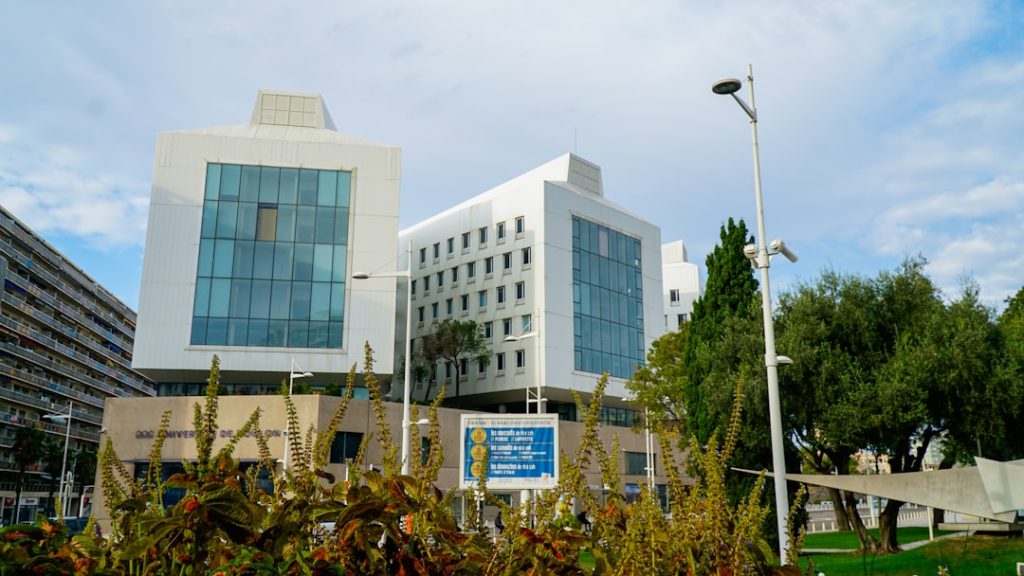Clinical Research Organizations (CROs) play a pivotal role in the development of new medical therapies and interventions. These organizations are specialized entities that provide support to the pharmaceutical, biotechnology, and medical device industries by offering a range of services related to clinical trials. Their primary function is to manage the logistics of clinical studies, which include planning, executing, and monitoring trials to ensure compliance with regulatory standards.
CROs are essential in bridging the gap between scientific research and practical application, facilitating the transition from laboratory discoveries to real-world treatments. The landscape of clinical research is complex and multifaceted, involving various stakeholders such as sponsors, regulatory bodies, and healthcare professionals. CROs serve as intermediaries that streamline communication and coordination among these parties.
They employ a diverse team of experts, including clinical research associates, biostatisticians, regulatory affairs specialists, and data managers, all of whom contribute to the successful execution of clinical trials. By leveraging their expertise and resources, CROs help to minimize risks, reduce costs, and accelerate the timeline for bringing new therapies to market.
Key Takeaways
- Local Clinical Research Organizations (CROs) play a crucial role in conducting and managing clinical trials within specific regions.
- Choosing a local CRO offers benefits such as better communication, faster recruitment, and enhanced understanding of local patient populations.
- Key factors when selecting a local CRO include experience, regulatory compliance, and quality of services provided.
- Participating in clinical trials at local CROs provides access to cutting-edge treatments and contributes to medical advancements.
- Supporting and engaging with local CROs is vital for fostering innovation and addressing future trends in clinical research.
Benefits of Choosing a Local Clinical Research Organization
Opting for a local Clinical Research Organization can offer numerous advantages that enhance the overall experience for both sponsors and participants. One of the most significant benefits is the proximity to the patient population. Local CROs often have established relationships with community healthcare providers and institutions, which can facilitate patient recruitment and retention.
This localized approach allows for a more tailored recruitment strategy that resonates with the community’s demographics and health concerns, ultimately leading to more relevant and diverse study populations. Additionally, local CROs tend to have a better understanding of regional regulatory requirements and cultural nuances that may impact clinical trials. This knowledge can be invaluable in navigating the complexities of compliance and ensuring that studies are conducted ethically and effectively.
Furthermore, local organizations often provide a more personalized level of service, fostering closer collaboration between sponsors and research teams. This can lead to improved communication, quicker decision-making processes, and a more agile response to any challenges that may arise during the trial.
Factors to Consider When Choosing a Local Clinical Research Organization

When selecting a local Clinical Research Organization, several critical factors should be taken into account to ensure that the chosen partner aligns with the specific needs of the study. One of the foremost considerations is the CRO’s experience and expertise in the relevant therapeutic area. It is essential to evaluate their track record in conducting similar studies, as this can significantly influence the quality of data collected and the overall success of the trial.
A CRO with a strong background in a particular field will likely have established protocols and best practices that can enhance efficiency. Another important factor is the organization’s infrastructure and resources. This includes assessing their technological capabilities, such as data management systems and electronic health record integration, which are crucial for efficient trial management.
Additionally, consider the size of the CRO; larger organizations may offer more extensive resources but could lack the personalized attention that smaller firms provide. Conversely, smaller CROs may be more flexible and responsive but might not have the same breadth of resources. Balancing these aspects is vital in making an informed decision.
Top Local Clinical Research Organizations Near Me
| Organization Name | Location | Specialties | Years in Operation | Number of Trials Conducted | Contact |
|---|---|---|---|---|---|
| City Clinical Research | New York, NY | Oncology, Cardiology, Neurology | 15 | 120 | (212) 555-1234 |
| Metro Research Group | Chicago, IL | Diabetes, Infectious Diseases | 10 | 85 | (312) 555-5678 |
| HealthFirst Clinical Trials | Los Angeles, CA | Cardiology, Dermatology | 12 | 95 | (310) 555-9012 |
| Precision Research Solutions | Houston, TX | Neurology, Oncology | 8 | 70 | (713) 555-3456 |
| Advanced Clinical Studies | Miami, FL | Infectious Diseases, Endocrinology | 14 | 110 | (305) 555-7890 |
Identifying top local Clinical Research Organizations requires thorough research into their reputations, areas of expertise, and past performance. For instance, organizations like Medpace and PRA Health Sciences have established themselves as leaders in the field with a strong presence in various regions. Medpace, headquartered in Cincinnati, Ohio, is known for its comprehensive services across multiple therapeutic areas, including oncology and cardiology.
Their commitment to quality and patient-centric approaches has garnered them recognition within the industry. Another notable example is Covance, which operates numerous facilities across the United States. Covance specializes in drug development services and has a robust network that facilitates patient recruitment and data collection.
Their focus on innovation and technology integration positions them as a competitive player in the local CRO landscape. Additionally, smaller regional organizations may also provide exceptional services tailored to specific communities or therapeutic areas, making it essential to explore all available options.
How to Participate in Clinical Trials at a Local Research Organization
Participating in clinical trials at a local research organization can be an enriching experience for individuals looking to contribute to medical advancements while potentially benefiting from cutting-edge treatments. The first step in this process typically involves identifying ongoing trials that align with one’s health conditions or interests. Many local CROs maintain websites or databases where they list current studies seeking participants.
These platforms often provide detailed information about eligibility criteria, study objectives, and potential risks involved. Once a suitable trial is identified, interested individuals can reach out to the CRO directly or through their healthcare provider for further information. The enrollment process usually includes an initial screening to determine eligibility based on specific health parameters and medical history.
Participants may undergo various assessments or interviews before being officially enrolled in the study. It is crucial for potential participants to ask questions about the trial’s purpose, procedures, and any compensation offered for participation to make an informed decision.
The Role of Local Clinical Research Organizations in Advancing Medicine

Local Clinical Research Organizations play an instrumental role in advancing medicine by facilitating innovative research that leads to new treatments and therapies. By conducting clinical trials within communities, these organizations contribute valuable data that can inform medical practices and improve patient outcomes. The localized nature of their work allows them to address specific health issues prevalent in their regions, ensuring that research is relevant and impactful.
Moreover, local CROs often collaborate with academic institutions and healthcare providers to foster a culture of research within their communities. This collaboration can lead to increased awareness about clinical trials among patients and healthcare professionals alike, encouraging more individuals to participate in research initiatives. As a result, local CROs not only advance scientific knowledge but also empower communities by providing access to cutting-edge treatments that may not be available through conventional healthcare channels.
The Importance of Supporting Local Clinical Research Organizations
Supporting local Clinical Research Organizations is vital for fostering innovation in healthcare and ensuring that communities benefit from advancements in medical science. By investing in these organizations—whether through funding, partnerships, or volunteer participation—individuals and institutions can help sustain their operations and enhance their capabilities. This support can lead to increased research opportunities within local communities, ultimately improving public health outcomes.
Furthermore, local CROs often rely on community engagement to build trust and awareness about clinical trials. By actively participating in outreach efforts or educational programs, community members can help demystify clinical research and encourage broader participation among diverse populations. This inclusivity is essential for generating comprehensive data that reflects various demographics, ultimately leading to more effective treatments tailored to different groups.
Future Trends in Local Clinical Research Organizations
The future of local Clinical Research Organizations is poised for transformation as advancements in technology continue to reshape the landscape of clinical trials. One significant trend is the increasing adoption of decentralized clinical trials (DCTs), which leverage digital tools to facilitate remote patient monitoring and data collection. This approach allows for greater flexibility in trial design and can enhance patient recruitment by reducing geographical barriers.
Additionally, artificial intelligence (AI) and machine learning are becoming integral components of clinical research processes. These technologies can streamline data analysis, improve patient selection criteria, and enhance predictive modeling for trial outcomes. As local CROs embrace these innovations, they will likely become more efficient in managing studies while maintaining high standards of quality and compliance.
Moreover, there is a growing emphasis on patient-centric approaches within clinical research. Local CROs are increasingly prioritizing patient engagement throughout the trial process by incorporating feedback mechanisms that allow participants to voice their experiences and concerns. This shift not only improves participant satisfaction but also enhances the quality of data collected by ensuring that studies are designed with patients’ needs in mind.
In conclusion, local Clinical Research Organizations are essential players in the advancement of medical science. Their unique position within communities allows them to conduct relevant research while fostering collaboration among various stakeholders. As they adapt to emerging trends and technologies, these organizations will continue to play a crucial role in shaping the future of healthcare.




